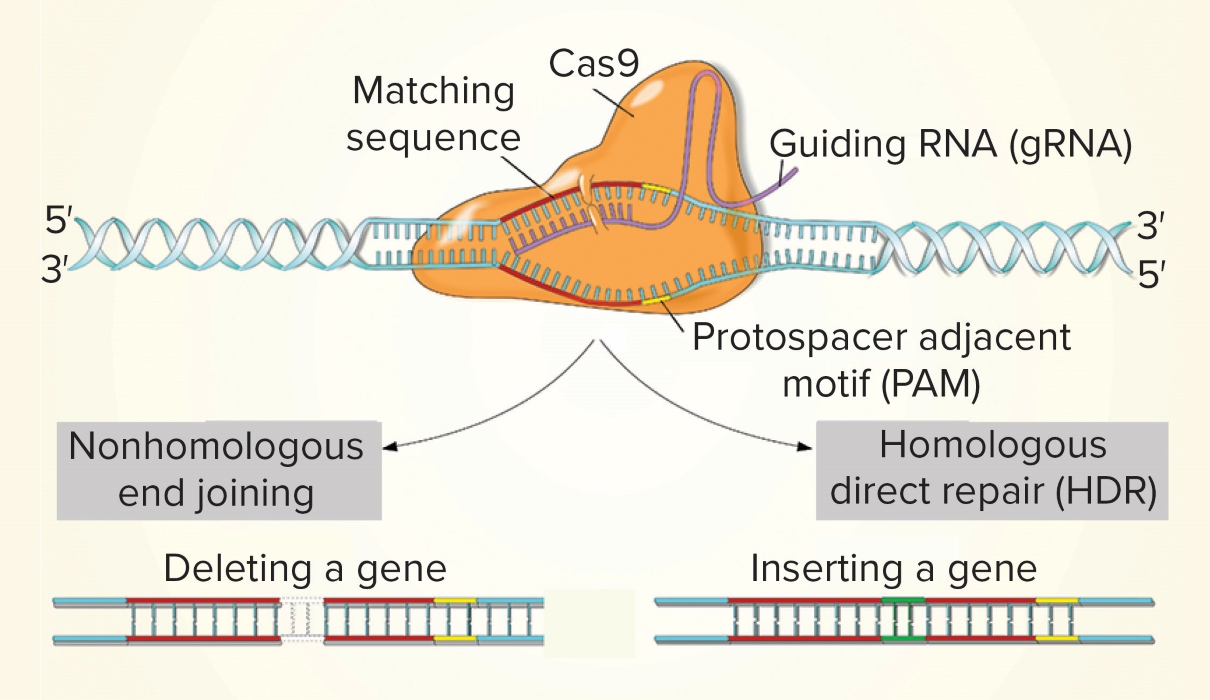
CRISPR-Cas9 is a revolutionary gene editing tool that has taken the field of molecular biology by storm. It is a powerful technology that allows scientists to make precise changes to the DNA of living organisms. Since its discovery in the early 2010s, CRISPR-Cas9 has sparked immense excitement and intrigue in both the scientific community and the general public.
In this article, we will delve into the fascinating world of CRISPR-Cas9 and explore 16 intriguing facts about this groundbreaking technology. From its origins in bacterial immune systems to its potential applications in agriculture, medicine, and beyond, we will uncover the key aspects that make CRISPR-Cas9 so remarkable.
So, buckle up and get ready to learn about the science behind CRISPR-Cas9 and the incredible possibilities it holds for shaping the future of genetic research and biotechnology.
Key Takeaways:
- CRISPR-Cas9 is a powerful gene editing tool discovered in bacteria, offering precise DNA modifications with potential applications in medicine and agriculture. Its future is full of possibilities and ethical considerations.
- The revolutionary CRISPR-Cas9 technology has the potential to treat genetic disorders, modify genetic traits in animals, and even drive gene spread through populations. However, ethical concerns and limitations still need to be addressed.
CRISPR-Cas9 is a Revolutionary Gene Editing Tool
CRISPR-Cas9 is a breakthrough technology that enables scientists to edit DNA with remarkable precision.
It Was Discovered in Bacteria
The CRISPR-Cas9 system was originally discovered in bacteria as part of their immune system defense against viruses.
CRISPR Stands for Clustered Regularly Interspaced Short Palindromic Repeats
CRISPR refers to a unique DNA sequence found in the genome of bacteria and other organisms.
Cas9 is an RNA-guided Protein
Cas9 is an enzyme that acts as a pair of “molecular scissors,” cutting DNA at specific locations guided by a small RNA molecule.
It Can Target and Edit Specific Genes
CRISPR-Cas9 can be programmed to target and modify specific genes, offering unprecedented control over genetic material.
It Has Multiple Applications in Medicine
CRISPR-Cas9 has shown great potential in treating genetic diseases, developing new therapies, and even combating certain types of cancer.
The Discovery of CRISPR-Cas9 Won the Nobel Prize in Chemistry
In 2020, Jennifer Doudna and Emmanuelle Charpentier were awarded the Nobel Prize in Chemistry for their groundbreaking work on CRISPR-Cas9.
It Is Cost-Effective and Efficient
Compared to previous gene editing methods, CRISPR-Cas9 is relatively inexpensive and allows for quicker and more targeted modifications.
Ethical Concerns Surround Its Use
The ease and power of CRISPR-Cas9 raise ethical questions about genetic engineering, including the possibility of designer babies and unintended consequences.
CRISPR-Cas9 Can Revolutionize Agriculture
By modifying crop genes, CRISPR-Cas9 can enhance crop yield, increase resistance to pests and disease, and improve nutritional content.
It Is Not Without Limitations
CRISPR-Cas9 can still result in off-target effects and requires further refinement and testing before widespread use in clinical settings.
CRISPR-Cas9 Has Sparked a Patent Battle
Several research institutions and companies are engaged in a legal battle over the rights and ownership of the CRISPR-Cas9 technology.
It Offers Hope for Treating Genetic Disorders
CRISPR-Cas9 holds promise in correcting genetic mutations responsible for various disorders, such as cystic fibrosis and sickle cell disease.
CRISPR-Cas9 Can Modify Genetic Traits in Animals
Scientists have successfully used CRISPR-Cas9 to create genetically modified animals with specific traits, offering prospects for agricultural and medical advancements.
It Allows for Gene Drive Technology
Gene drive refers to the ability to spread a specific gene through a population rapidly. CRISPR-Cas9 has the potential to dramatically change ecosystems, but also raises ethical concerns.
The Future of CRISPR-Cas9 is Exciting and Uncertain
As scientists continue to explore and refine the applications of CRISPR-Cas9, its potential for both groundbreaking discoveries and ethical dilemmas remains uncertain yet highly intriguing.
Conclusion
In conclusion, CRISPR-Cas9 is a revolutionary gene-editing tool that has had a significant impact on the field of genetics and molecular biology. Its ability to precisely modify DNA sequences has opened up new possibilities for scientific research, medical advancements, and even ethical debates. The 16 intriguing facts about CRISPR-Cas9 showcased in this article demonstrate the power and potential of this technology.
From its origins as a bacterial defense mechanism to its applications in agriculture, medicine, and bioengineering, CRISPR-Cas9 continues to be at the forefront of scientific discoveries. As researchers delve deeper into its capabilities and limitations, the future of CRISPR-Cas9 looks promising, with the potential to revolutionize the way we understand and treat genetic diseases.
As the field of gene editing evolves, it is crucial to stay informed about the latest developments and ethical considerations surrounding CRISPR-Cas9. By staying up to date with the latest research, society can navigate the opportunities and challenges presented by this groundbreaking technology.
FAQs
1. What is CRISPR-Cas9?
CRISPR-Cas9 is a gene-editing tool derived from the bacterial immune system. It allows scientists to modify DNA sequences with high precision and efficiency.
2. How does CRISPR-Cas9 work?
CRISPR-Cas9 uses a guide RNA molecule to target a specific DNA sequence and a Cas9 enzyme to cut the DNA at that location. Researchers can then introduce desired genetic changes or repair mutations.
3. What are the applications of CRISPR-Cas9?
CRISPR-Cas9 has numerous applications, including gene therapy to treat genetic diseases, creating genetically modified organisms, studying gene function, and developing new antibiotics.
4. Are there any limitations to CRISPR-Cas9?
Yes, CRISPR-Cas9 is not without limitations. Off-target effects, ethical concerns, and potential unintended consequences are areas of consideration that researchers are actively addressing.
5. What are the ethical implications of using CRISPR-Cas9?
Using CRISPR-Cas9 raises ethical questions related to designer babies, germline editing, and unintended consequences. Society must engage in thoughtful discussions to establish ethical frameworks for its use.
CRISPR-Cas9's potential seems limitless, but there's still much to learn. Curious minds can explore extraordinary facts about this gene-editing technology, intriguing details of how it works, and captivating insights into the brilliant scientist who helped pioneer it. Whether you're a science enthusiast or simply fascinated by groundbreaking discoveries, these engaging articles will satisfy your thirst for knowledge and leave you marveling at the incredible possibilities CRISPR-Cas9 holds for our future. So, let's continue this exciting journey and uncover more about this remarkable scientific breakthrough that's transforming our understanding of genetics and life itself.
Was this page helpful?
Our commitment to delivering trustworthy and engaging content is at the heart of what we do. Each fact on our site is contributed by real users like you, bringing a wealth of diverse insights and information. To ensure the highest standards of accuracy and reliability, our dedicated editors meticulously review each submission. This process guarantees that the facts we share are not only fascinating but also credible. Trust in our commitment to quality and authenticity as you explore and learn with us.


